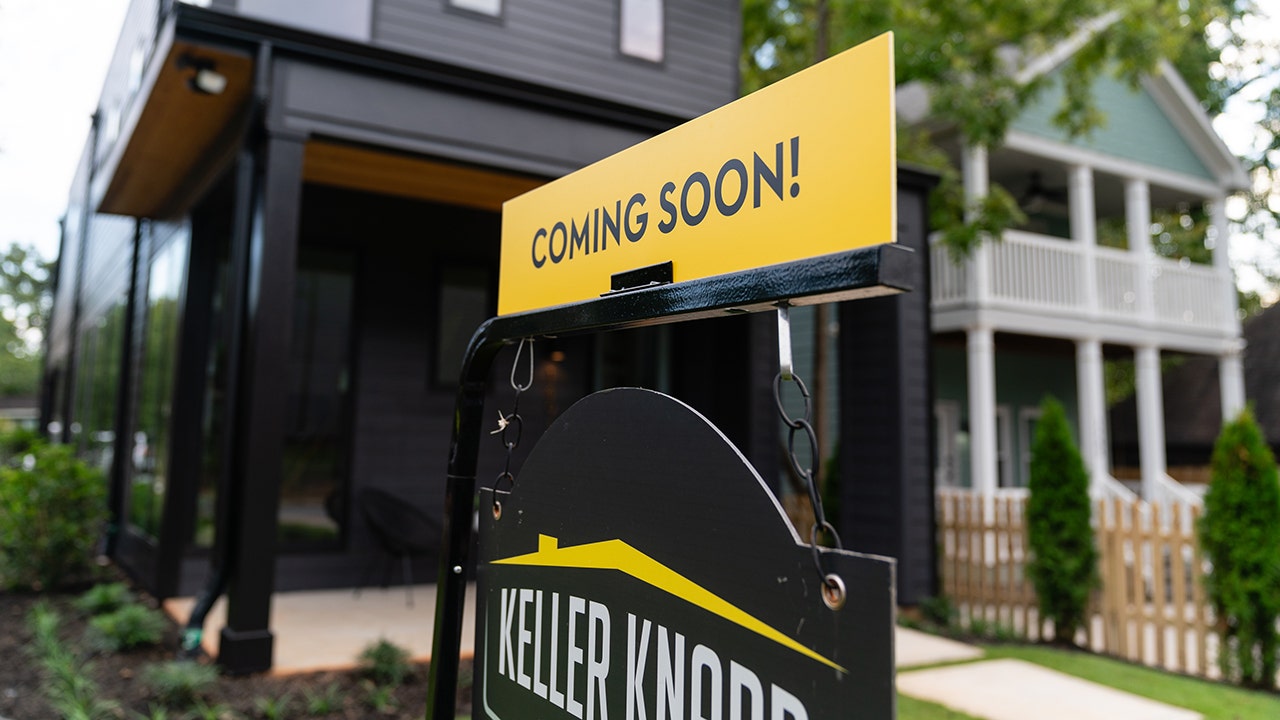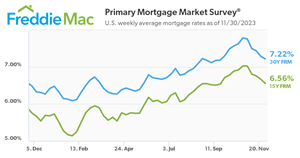Reuters
US existing home sales to stay subdued next year, along with prices
L.Thompson3 months ago
A worker walks on scaffolding at the construction site of a new home in Carlsbad, California September 22, 2014. REUTERS/Mike Blake/File Photo Acquire Licensing Rights
Reuters poll graphic on the U.S. housing market housing poll data BENGALURU, Nov 30 (Reuters) - U.S. existing home sales are forecast to remain subdued next year and beyond as high mortgage rates force homeowners to stay put, according to a Reuters poll of analysts, who also expected house prices to edge higher. The rate on the popular 30-year fixed-rate mortgage hit a more than two-decade high just under 8% last month, leading to a 4.1% drop in U.S. existing home sales last month alone to the lowest annualized rate since 2010, 3.79 million units. The 30-year mortgage rate has since retreated a bit to levels last seen in late September, but is expected to average 6.5% throughout next year, according to the poll, not averaging below 6% until 2025. Home resales, which account for the bulk of U.S. housing transactions, were expected to average a little over 4 million units next year. That is a far cry from an average 6 million in 2021 during the pandemic housing boom and the 5.3 million average over the past quarter century. While interest rate cuts are on the way next year, they may not be enough to significantly alter the trend. The Federal Reserve will cut rates by 75 basis points by the end of 2024, with the first cut in the second quarter, a separate Reuters poll found. Despite those cuts, mortgage rates are likely to be too high to entice existing homeowners to put property up for sale, analysts said. "Existing home sales have been constrained by the lack of resale inventory available in the market," said Crystal Sunbury, senior real estate analyst at RSM, a U.S.-based consulting firm. "We may see more resale units come into the market, as mortgage rates ease. But resale inventory is not expected to climb substantially, as over 80% of current homeowners are estimated to have mortgages under 5% and the vast majority will not be willing to trade up their mortgage for a higher rate." Existing home sales were forecast to average 3.84 million annualized units this quarter, followed by 3.90 million, 4.03 million, 4.20 million and 4.38 million units over the next four quarters. Meanwhile, property developers are cranking up housing supply to take advantage of the demand-supply mismatch. Residential investment rebounded in the third quarter after contracting for nine straight quarters. An overwhelming 83% majority of analysts, 20 of 24, said supply of affordable homes over the coming two to three years will improve. But only five said the improvement would be enough to keep up with demand. Poll medians showed average house prices as measured by the S&P CoreLogic Case-Shiller composite index of 20 metropolitan areas rising 2.7% this year and 1.8% in 2024. That was an upgrade from a September survey where prices were forecast to flatline in both years. Low single-digit price rises would represent a more stable outlook in the housing market, which in the pandemic years alone soared nearly 45%. But for most first-time buyers, the average home price is already prohibitively high, requiring a huge deposit before purchase. "The housing market continues to experience a tug of war between buyers who are priced out due to high mortgage rates and owners who are locked in to their existing mortgages," said Cristian deRitis, deputy chief economist at Moody's Analytics. "Limited supply of homes available for sale will continue to support prices in the short term." In the meantime, many young families who can't afford to put down a deposit or take out mortgages at these rates will have to continue renting, which has been extremely expensive in recent years. Rents are only now starting to decline more broadly. A slight majority of poll respondents, 13 of 22, said the proportion of home ownership to renters will increase somewhat or increase significantly over the coming five years. The remaining nine said it would decrease. (Other stories from the Reuters quarterly housing market polls)Read the full article:https://www.reuters.com/markets/us/us-existing-home-sales-stay-subdued-next-year-along-with-prices-2023-11-30/
0 Comments
0
/cloudfront-us-east-2.images.arcpublishing.com/reuters/KNMHG2IPVVIKXBZFHSWO7VAWIY.jpg)

/cloudfront-us-east-2.images.arcpublishing.com/reuters/BLKVNNNDW5P5PNGP2DBYLAM4J4.jpg)

:quality(70)/cloudfront-us-east-1.images.arcpublishing.com/cmg/OWPMLM23G6MS3KXQ6YOJCK4CP4.jpg)



:quality(70)/cloudfront-us-east-1.images.arcpublishing.com/cmg/OWPMLM23G6MS3KXQ6YOJCK4CP4.jpg)











